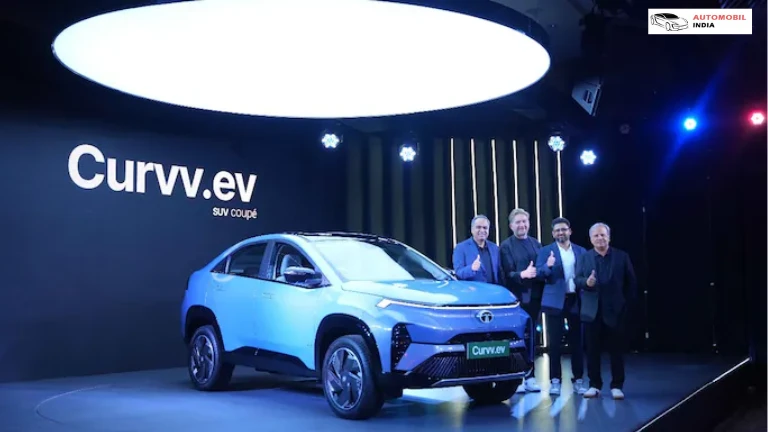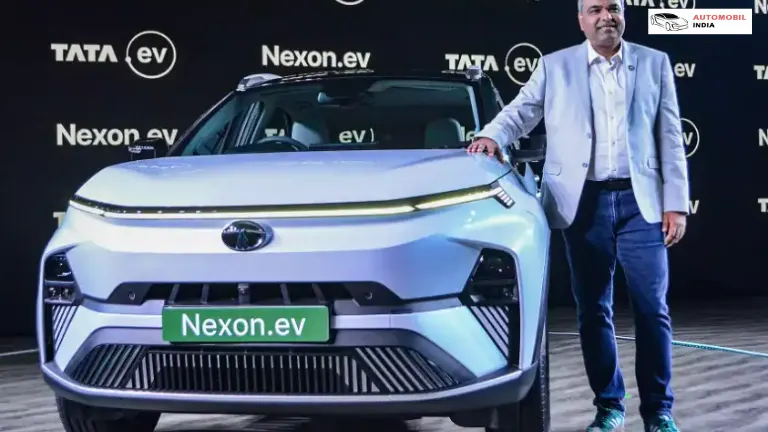Select City
Select City A&N Islands, Andaman Nicobar Abohar, Punjab Abu, Rajasthan Addanki, Andhra Pradesh Adilabad, Telangana Adimali, Kerala Adoni, Andhra Pradesh Agar Malwa, Madhya Pradesh Agartala, Tripura Agra, Uttar Pradesh Agwanpur, Uttar Pradesh Ahmedabad, Gujarat Ahmednagar, Maharashtra Aizwal, Mizoram Ajmer, Rajasthan Ajnala, Punjab Akbarpur, Rajasthan Akbarpur, Uttar Pradesh Akbarpur, Uttarakhand Akkalkot, Maharashtra Akluj, Maharashtra Akola, Maharashtra Alamcode, Kerala Alampur, Telangana Alandi, Maharashtra Alappuzha, Kerala Alibag, Maharashtra Aligarh, Uttar Pradesh Alipurduar, West Bengal Alirajpur, Madhya Pradesh Allahabad, Uttar Pradesh Alleppey, Kerala Allur, Andhra Pradesh Almora, Uttarakhand Alwar, Rajasthan Alwaye, Kerala Amalapuram, Andhra Pradesh Amaravati (Andhra Pradesh), Andhra Pradesh Ambajogai, Maharashtra Ambala Cantt, Haryana Ambala City, Haryana Ambalapuzha, Kerala Ambattur, Tamil Nadu Ambedkarnagar, Uttar Pradesh Ambikapur, Chhattisgarh Amethi, Uttar Pradesh Amravati (Maharashtra), Maharashtra Amreli, Gujarat Amritsar, Punjab Amroha, Uttar Pradesh Anakapalle, Andhra Pradesh Anand, Gujarat Anandpur Sahib, Punjab Anantapur, Andhra Pradesh Anantnag, Jammu & Kashmir Anekal, Karnataka Angamaly, Kerala Angul, Orissa Anjar, Gujarat Ankleshwar, Gujarat Ankola, Karnataka Annavaram, Andhra Pradesh Anuppur, Madhya Pradesh Ara, Bihar Arakkonam, Tamil Nadu Aralvaimozhi, Tamil Nadu Arambagh, West Bengal Arani, Tamil Nadu Araria, Bihar Aravalli, Gujarat Ariyalur, Tamil Nadu Arni, Tamil Nadu Aroor, Kerala Arwal, Bihar Asandh, Haryana Asansol, West Bengal Ashoknagar, Madhya Pradesh Ashta, Madhya Pradesh Astaranga, Orissa Athani, Karnataka Atmakur, Andhra Pradesh Attur, Tamil Nadu Auraiya, Uttar Pradesh Aurangabad (Bihar), Bihar Aurangabad, Maharashtra Avadi, Tamil Nadu Avinashi, Tamil Nadu Ayodhya, Uttar Pradesh Azamgarh, Uttar Pradesh Babra, Gujarat Babrala, Uttar Pradesh Badami, Karnataka Badaun, Uttar Pradesh Baddi, Himachal Pradesh Badlapur, Maharashtra Badnagar , Madhya Pradesh Badohi, Uttar Pradesh Badrachalam, Andhra Pradesh Bagalkot, Karnataka Bagasara, Gujarat Bageshwar, Uttarakhand Bagha Purana, Punjab Baghpat, Uttar Pradesh Bahadurgarh, Haryana Baharagora, Jharkhand Baharampur, West Bengal Bahraich, Uttar Pradesh Baikunthpur, Chhattisgarh Baksa, Assam Balaghat, Madhya Pradesh Balakati, Orissa Balangir, Orissa Balasinor, Gujarat Balasore, Orissa Ballabhgarh, Haryana Ballia, Uttar Pradesh Balod, Chhattisgarh Baloda Bazaar, Chhattisgarh Balotra, Rajasthan Balrampur, Chhattisgarh Balrampur, Uttar Pradesh Balurghat, West Bengal Banaskantha, Gujarat Banda, Uttar Pradesh Bandipora, Jammu & Kashmir Bangalore, Karnataka Bangarapet, Karnataka Banka, Bihar Bankura, West Bengal Banswara, Rajasthan Bantwal, Karnataka Bapatla, Andhra Pradesh Barabanki, Uttar Pradesh Barackpore, West Bengal Baragoda, Jharkhand Baraipali, Orissa Barajamda, Jharkhand Baramati, Maharashtra Baramulla, Jammu & Kashmir Baran, Rajasthan Barasat, West Bengal Barbil, Orissa Bardez, Goa Bardoli, Gujarat Bareilly, Uttar Pradesh Bargarh, Orissa Barhi, Jharkhand Baripada, Orissa Barkakana, Jharkhand Barmer, Rajasthan Barnala, Punjab Barpeta, Assam Barshi, Maharashtra Baruipur, West Bengal Barwala, Haryana Barwani, Madhya Pradesh Basaria, Jharkhand Basavakalyana, Karnataka Basirhat, West Bengal Basna, Chhattisgarh Bastar, Chhattisgarh Basti, Uttar Pradesh Batala, Punjab Bathinda, Punjab Bavla, Gujarat Bazpur, Uttarakhand Beawar, Rajasthan Beed, Maharashtra Begun, Rajasthan Begusarai, Bihar Behror, Rajasthan Belampalli, Telangana Beldanga, West Bengal Belgaum, Karnataka Bellary, Karnataka Belpahar, Orissa Belthangady, Karnataka Belur, Karnataka Bemetara, Chhattisgarh Berhampore, West Bengal Bettiah, Bihar Betul, Madhya Pradesh Bewar, Uttar Pradesh Bhadohi, Uttar Pradesh Bhadrak, Orissa Bhadravati, Karnataka Bhagalpur, Bihar Bhandara, Maharashtra Bharanikavu, Kerala Bharatpur, Rajasthan Bharuch, Gujarat Bhatapara, Chhattisgarh Bhatiya, Gujarat Bhatkal, Karnataka Bhavani, Tamil Nadu Bhavnagar, Gujarat Bhawanipatna, Orissa Bhesan, Gujarat Bhilai, Chhattisgarh Bhilwara, Rajasthan Bhimavaram, Andhra Pradesh Bhind, Madhya Pradesh Bhiwadi, Rajasthan Bhiwandi, Maharashtra Bhiwani, Haryana Bhojpur, Bihar Bhopal, Madhya Pradesh Bhuban, Orissa Bhubaneswar, Orissa Bhuj, Gujarat Bhurkunda S.O, Jharkhand Bhusawal, Maharashtra Biaora, Madhya Pradesh Bicholim, Goa Bidar, Karnataka Bihar Sharif, Bihar Bijapur, Karnataka Bijapur(CGH), Chhattisgarh Bijnor, Uttar Pradesh Bijoynagar, Assam Bikaner, Rajasthan Bilaspur (HP), Himachal Pradesh Bilaspur (Punjab), Punjab Bilaspur, Chhattisgarh Bilgi, Karnataka Bina, Madhya Pradesh Birbhum, West Bengal Bishnupur, Manipur Bishnupur, West Bengal Bishwanath Charali, Assam Bodh Gaya, Bihar Boisar, Maharashtra Bokajan, Assam Bokakhat, Assam Bokaro Steel City, Jharkhand Boko, Assam Bolpur, West Bengal Bongaigaon, Assam Bongaon, West Bengal Botad, Gujarat Boudh, Orissa Brahmapur, Orissa Budaun, Uttar Pradesh Budgam, Jammu & Kashmir Bulandshahar, Uttar Pradesh Buldhana, Maharashtra Bundelkhand, Uttar Pradesh Bundi, Rajasthan Bundu, Jharkhand Burdwan, West Bengal Burhanpur, Madhya Pradesh Buxar, Bihar Byrnihat, Meghalaya Cachar, Assam Canacona, Goa Chakradharpur, Jharkhand Chalisgaon, Maharashtra Chamba, Himachal Pradesh Chamoli, Uttarakhand Champawat, Uttarakhand Champhai, Mizoram Chamrajnagar, Karnataka Chandauli, Uttar Pradesh Chandausi, Uttar Pradesh Chandel, Manipur Chandigarh, Chandigarh Chandikhol, Orissa Chandil, Jharkhand Chandpur, Uttar Pradesh Chandrapur, Maharashtra Chandrapura, Jharkhand Changanassery, Kerala Changlang, Arunachal Pradesh Channapatna, Karnataka Channarayapattana, Karnataka Charkhi Dadri, Haryana Chas, Jharkhand Chatra, Jharkhand Chaufula, Maharashtra Chengalpattu, Tamil Nadu Chengannur, Kerala Chenguvetti, Kerala Chennai, Tamil Nadu Cheranellore, Kerala Chhabra, Rajasthan Chhapra, Bihar Chhatarpur, Madhya Pradesh Chhindwara, Madhya Pradesh Chidambaram, Tamil Nadu Chikamagalur, Karnataka Chikhli, Gujarat Chikkaballapur, Karnataka Chikodi, Karnataka Chilakalurupet, Andhra Pradesh Chinsurah, West Bengal Chiplun, Maharashtra Chirala, Andhra Pradesh Chirang, Assam Chirimiri, Chhattisgarh Chitradurga, Karnataka Chitrakoot, Uttar Pradesh Chittoor, Andhra Pradesh Chittorgarh, Rajasthan Chomu, Rajasthan Chota Udaipur, Gujarat Chotila, Gujarat Churachandpur, Manipur Churu, Rajasthan Coimbatore, Tamil Nadu Contai, West Bengal Cooch Behar, West Bengal Coorg, Karnataka Cortalim, Goa Cuddalore, Tamil Nadu Cumbum, Andhra Pradesh Cuncolim, Goa Cuttack, Orissa Dabra, Madhya Pradesh Dadra & Nagar Haveli, Dadra and Nagar Haveli Dadri, Uttar Pradesh Dahanu, Maharashtra Dahod, Gujarat Dak. Kannada, Karnataka Dakshin Dinajpur, West Bengal Dakshineswar, West Bengal Dalkhola, West Bengal Dalli Rajhara, Chhattisgarh Daltonganj, Jharkhand Daltongunj, Jharkhand Daman, Daman & Diu Damanjodi, Orissa Damoh, Madhya Pradesh Damtal, Himachal Pradesh Danapur, Bihar Dangs, Gujarat Dankuni, West Bengal Dantewada, Chhattisgarh Dapoli, Maharashtra Darbhanga, Bihar Darjeeling, West Bengal Darrang, Assam Dasada, Gujarat Daskroi, Gujarat Datia, Madhya Pradesh Daund, Maharashtra Dausa, Rajasthan Davanagere, Karnataka Deesa, Gujarat Dehradun, Uttarakhand Delhi, Delhi Deogarh, Orissa Deoghar, Jharkhand Deoria, Uttar Pradesh Dera Bassi, Punjab Devanahalli, Karnataka Devbhumi Dwarka, Gujarat Devgad, Maharashtra Dewas, Madhya Pradesh Dhalai, Tripura Dhamtari, Chhattisgarh Dhanaura, Uttar Pradesh Dhanbad, Jharkhand Dhandhuka, Gujarat Dhankal, Orissa Dhar, Madhya Pradesh Dharamsala, Himachal Pradesh Dharamshala, Himachal Pradesh Dharapuram, Tamil Nadu Dhari, Gujarat Dharmanagar, Tripura Dharmapuri, Tamil Nadu Dharmavaram, Andhra Pradesh Dharwad, Karnataka Dhemaji, Assam Dhenkanal, Orissa Dholera, Gujarat Dholka, Gujarat Dholpur, Rajasthan Dhrangadhra, Gujarat Dhubri, Assam Dhule, Maharashtra Dhuri, Punjab Diamond Harbour, West Bengal Dibang Valley, Arunachal Pradesh Dibrugarh, Assam Didwana, Rajasthan Digboi, Assam Dima Hasao, Assam Dimapur, Nagaland Dindigul, Tamil Nadu Dindori - MH, Maharashtra Dindori, Madhya Pradesh Diphu, Assam Diu, Daman & Diu Doda, Jammu & Kashmir Doddaballapura, Karnataka Dombivali, Maharashtra Duliajan, Assam Dumka, Jharkhand Dungarpur, Rajasthan Durg, Chhattisgarh Durgapur, West Bengal East Champaran, Bihar East Garo Hills, Meghalaya East Godavari, Andhra Pradesh East Kameng, Arunachal Pradesh East Khasi Hills, Meghalaya East Siang, Arunachal Pradesh East Sikkim, Sikkim East Singhbhum, Jharkhand Edappally, Kerala Eluru, Andhra Pradesh Ernakulam, Kerala Erode, Tamil Nadu Etah, Uttar Pradesh Etawah, Uttar Pradesh Faizabad, Uttar Pradesh Faridabad, Haryana Faridkot, Punjab Farrukhabad, Uttar Pradesh Fatehabad, Haryana Fatehgarh Sahib, Punjab Fatehpur, Uttar Pradesh Fazilka, Punjab Firozabad, Uttar Pradesh Firozpur, Punjab Gadag, Karnataka Gadarwara, Madhya Pradesh Gadchiroli, Maharashtra Gadhada, Gujarat Gadhinglaj, Maharashtra Gadwal, Telangana Gagret, Himachal Pradesh Gajapathi, Orissa Gajraulla, Uttar Pradesh Gandhidham, Gujarat Gandhinagar, Gujarat Ganganagar, Rajasthan Gangapur, Rajasthan Gangavathi, Karnataka Gangtok, Sikkim Ganj Basoda, Madhya Pradesh Ganjam, Orissa Garhwa, Jharkhand Gariaband, Chhattisgarh Gariadhar, Gujarat Gautam Buddha Nagar, Uttar Pradesh Gaya, Bihar Ghatotand, Jharkhand Ghaziabad, Uttar Pradesh Ghazipur, Uttar Pradesh Ghogha, Gujarat Ghumarwin, Himachal Pradesh Giddalur, Andhra Pradesh Gidderbaha, Punjab Giddi, Jharkhand Gir Somnath, Gujarat Giridih, Jharkhand Goa, Goa Goalpara, Assam Gobichettipalayam, Tamil Nadu Gobindpur, Jharkhand Godawari Khani, Telangana Godda, Jharkhand Godhra, Gujarat Gohana, Haryana Gokak, Karnataka Golaghat, Assam Gomati, Tripura Gonda, Uttar Pradesh Gondal, Gujarat Gondia, Maharashtra Gonikoppal, Karnataka Gooty, Andhra Pradesh Gopalganj, Bihar Gorakhpur, Uttar Pradesh Gotegaon, Madhya Pradesh Greater Noida, Uttar Pradesh Gudibanda, Karnataka Gudivada, Andhra Pradesh Gudur, Andhra Pradesh Guhagar, Maharashtra Gulbarga, Karnataka Gumla, Jharkhand Gummudipoondi, Tamil Nadu Guna, Madhya Pradesh Guntakal, Andhra Pradesh Guntur, Andhra Pradesh Gurdaspur, Punjab Gurgaon, Haryana Guruharsahai, Punjab Guwahati, Assam Gwalior, Madhya Pradesh Habra, West Bengal Hailakandi, Assam Hajipur, Bihar Hajo, Assam Haldia, West Bengal Haldwani, Uttarakhand Halol, Gujarat Halvad, Gujarat Hamirpur (Himachal Pradesh), Himachal Pradesh Hamirpur (Uttar Pradesh), Uttar Pradesh Hanamkonda, Telangana Hansi, Haryana Hanumangarh, Rajasthan Hapur, Uttar Pradesh Harda, Madhya Pradesh Hardoi, Uttar Pradesh Haridwar, Uttarakhand Haridwer, Uttar Pradesh Haripad, Kerala Harpanahalli, Karnataka Hassan, Karnataka Hathras, Uttar Pradesh Hatkanangale, Maharashtra Haveri, Karnataka Hazaribagh, Jharkhand Hilsa, Bihar Himmatnagar, Gujarat Hindupur, Andhra Pradesh Hinganghat, Maharashtra Hingoli, Maharashtra Hisar, Haryana Hojai, Assam Holenarasipur, Karnataka Honnavar, Karnataka Hooghly, West Bengal Hoshangabad, Madhya Pradesh Hoshiarpur, Punjab Hoskote, Karnataka Hospet, Karnataka Hosur, Tamil Nadu Howrah, West Bengal Hubli, Karnataka Huzurabad, Telangana Hyderabad, Telangana Ichalkaranji, Maharashtra Idukki, Kerala Igatpuri, Maharashtra Ilkal, Karnataka Imphal, Manipur Indapur, Maharashtra Indore, Madhya Pradesh Iritty, Kerala Itanagar, Arunachal Pradesh Itarsi, Madhya Pradesh Itki, Jharkhand Jabalpur, Madhya Pradesh Jadcherla, Telangana Jadugora, Jharkhand Jafrabad, Gujarat Jagatsinghpur, Orissa Jagdalpur, Chhattisgarh Jaggampeta, Andhra Pradesh Jaggayyapeta, Andhra Pradesh Jagi Road, Assam Jagraon, Punjab Jagtial, Telangana Jahazpur , Rajasthan Jaintia Hills, Meghalaya Jaipur, Rajasthan Jaisalmer, Rajasthan Jajpur (Orissa), Orissa Jajpur Road, Orissa Jalalabad, Punjab Jalalpur, Uttar Pradesh Jalandhar, Punjab Jalaun, Uttar Pradesh Jalgaon, Maharashtra Jalna, Maharashtra Jalore, Rajasthan Jalpaiguri, West Bengal Jamkhandi, Karnataka Jammu, Jammu & Kashmir Jamnagar, Gujarat Jamshedpur, Jharkhand Jamtara, Jharkhand Jamui, Bihar Jangaon, Telangana Jangareddygudem, Andhra Pradesh Janjgir-Champa, Chhattisgarh Jashpur, Chhattisgarh Jassur, Himachal Pradesh Jaunpur, Uttar Pradesh Jaypore, Orissa Jaysingpur, Maharashtra Jehanabad, Bihar Jeypore, Orissa Jhabua, Madhya Pradesh Jhajjar, Haryana Jhalawar, Rajasthan Jhansi, Uttar Pradesh Jhargram, West Bengal Jharia Khas, Jharkhand Jharsuguda, Orissa Jhinkpani, Jharkhand Jhunjhunu, Rajasthan Jind, Haryana Joda, Orissa Jodhpur, Rajasthan Joginder Nagar, Punjab Jorabat, Meghalaya Jorhat, Assam Jowai, Meghalaya Jugsalai, Jharkhand Junagadh, Gujarat Kachighatti, Himachal Pradesh Kadapa, Andhra Pradesh Kadur, Karnataka Kagal, Maharashtra Kagaznagar, Telangana Kaimur (Bhabua), Bihar Kaithal, Haryana Kakatpur, Orissa Kakinada, Andhra Pradesh Kalahandi, Orissa Kalamassery, Kerala Kalimpong, West Bengal Kalka-HP, Himachal Pradesh Kalka, Haryana Kallakurichi, Tamil Nadu Kalol, Gujarat Kalpa, Himachal Pradesh Kalpetta, Kerala Kalwakurthy, Telangana Kalyan, Maharashtra Kalyani, West Bengal Kamaraj, Tamil Nadu Kamleshwar, Maharashtra Kamptee, Maharashtra Kamrup, Assam Kanakapura, Karnataka Kancheepuram, Tamil Nadu Kandarpur, Orissa Kandhamal, Orissa Kandukur, Andhra Pradesh Kangra, Himachal Pradesh Kanhan, Maharashtra Kanhangad, Kerala Kanigiri, Andhra Pradesh Kanjirappally, Kerala Kankavali, Maharashtra Kanker, Chhattisgarh Kannauj, Uttar Pradesh Kannur, Kerala Kanpur Dehat, Uttar Pradesh Kanpur Nagar, Uttar Pradesh Kanpur, Uttar Pradesh Kanth, Uttar Pradesh Kanyakumari, Tamil Nadu Kapadvanj, Gujarat Kapren, Rajasthan Kapurthala, Punjab Karad, Maharashtra Karaikal, Pondicherry Karaikudi, Tamil Nadu Karauli, Rajasthan Karbi Anglong, Assam Kareli, Madhya Pradesh Kargil, Jammu & Kashmir Karimganj, Assam Karimnagar, Telangana Karjat, Maharashtra Karkala, Karnataka Karmad, Maharashtra Karmala, Maharashtra Karnal, Haryana Karunagappally, Kerala Karur, Tamil Nadu Karwar, Karnataka Kasaragod, Kerala Kasauli, Himachal Pradesh Kasganj, Uttar Pradesh Kashipur, Uttarakhand Kathua, Jammu & Kashmir Katihar, Bihar Katni, Madhya Pradesh Katol, Maharashtra Kattappana, Kerala Kaushambi, Uttar Pradesh Kavali, Andhra Pradesh Kawardha, Chhattisgarh Kayamkulam, Kerala Kekri , Rajasthan Kendrapada, Orissa Kendrapara, Orissa Keonjhar, Orissa Keshod, Gujarat Khagaria, Bihar Khairtabad, Telangana Khalari, Jharkhand Khalilabad, Uttar Pradesh Khambha, Gujarat Khambhalia, Gujarat Khamgaon, Maharashtra Khammam, Telangana Khandwa, Madhya Pradesh Khanna, Punjab Kharagpur, West Bengal Kharar, Chandigarh Khardaha, West Bengal Khargone, Madhya Pradesh Khariberia, West Bengal Kharsia, Chhattisgarh Kharupetia, Assam Khatauli, Uttar Pradesh Khatima, Uttarakhand Khed, Maharashtra Kheda, Gujarat Khelari, Jharkhand Khetri, Assam Khopoli, Maharashtra Khordha, Orissa Khowai, Tripura Khunti, Jharkhand Khurda, Andhra Pradesh Khurda, Orissa Kim, Gujarat Kinnaur, Himachal Pradesh Kiphire, Nagaland Kishanganj, Bihar Kishangarh, Rajasthan Kishtwar, Jammu & Kashmir Kochi, Kerala Kodagu, Karnataka Kodar, Telangana Kodarma, Jharkhand Kodinar, Gujarat Kodungallur, Kerala Koduru, Karnataka Kohima, Nagaland Koira, Orissa Kokrajhar, Assam Kolar, Karnataka Kolasib, Mizoram Kolhapur, Maharashtra Kolkata, West Bengal Kollam, Kerala Kollancherry, Kerala Kollegal, Karnataka Konark, Orissa Kondagaon, Chhattisgarh Kopargaon, Maharashtra Koppal, Karnataka Koraput, Orissa Koratla, Telangana Korba, Chhattisgarh Koriya, Chhattisgarh Kosli, Haryana Kota, Rajasthan Kotdwar, Uttarakhand Kothamangalam, Kerala Kotkapura, Punjab Kotma, Madhya Pradesh Kotputli, Rajasthan Kottagudem, Telangana Kottakkal, Kerala Kottapatnam, Andhra Pradesh Kottarakkara, Kerala Kottayam, Kerala Kovilpatti, Tamil Nadu Kozhencherry, Kerala Kozhikode, Kerala Krishna, Andhra Pradesh Krishnagiri, Tamil Nadu Krishnanagar, West Bengal Kuchaman, Rajasthan Kudal, Maharashtra Kujang, Orissa Kuju, Jharkhand Kulgam, Jammu & Kashmir Kullu, Himachal Pradesh Kumbakonam, Tamil Nadu Kumhari, Chhattisgarh Kumta, Karnataka Kundapura, Karnataka Kundrathur, Tamil Nadu Kunigal, Karnataka Kunkavav, Gujarat Kunnamkulam, Kerala Kupwara, Jammu & Kashmir Kurdwadi, Maharashtra Kurnool, Andhra Pradesh Kurukshetra, Haryana Kurung Kumey, Arunachal Pradesh Kushinagar, Uttar Pradesh Kutch, Gujarat Kuzhithurai, Tamil Nadu Lahaul And Spiti, Himachal Pradesh Lailunga, Chhattisgarh Lakhimpur Kheri, Uttar Pradesh Lakhisarai, Bihar Lakshadweep, Kerala Lalitpur, Uttar Pradesh Lanja, Maharashtra Latehar, Jharkhand Latur, Maharashtra Lawngtlai, Mizoram Leh, Jammu & Kashmir Liliya, Gujarat Limdi, Gujarat Lohardaga, Jharkhand Lohit, Arunachal Pradesh Lonavla, Maharashtra Longleng, Nagaland Lower Dibang Valley, Arunachal Pradesh Lower Subansiri, Arunachal Pradesh Lucknow, Uttar Pradesh Ludhiana, Punjab Lunglei, Mizoram Maadhavaram, Tamil Nadu Machhiwara, Punjab Machilipatnam, Andhra Pradesh Madanapalle, Andhra Pradesh Madgaon, Goa Madha, Maharashtra Madhepura, Bihar Madhubani, Bihar Madhyamgram, West Bengal Madikeri, Karnataka Madurai, Tamil Nadu Magadi, Karnataka Mahabubabad, Telangana Mahad, Maharashtra Maharajganj, Uttar Pradesh Mahasamund, Chhattisgarh Mahbubnagar, Telangana Mahe, Kerala Mahendragarh, Haryana Maheshtala, West Bengal Mahisagar, Gujarat Mahoba, Uttar Pradesh Mahuva, Gujarat Mahwa, Rajasthan Maibang, Assam Maihar, Madhya Pradesh Mainpuri, Uttar Pradesh Maithon, Jharkhand Majuli , Assam Malappuram, Kerala Malda, West Bengal Malegaon, Maharashtra Maler Kotla, Punjab Malia, Gujarat Malkangiri, Orissa Mallapuram, Tamil Nadu Malout, Punjab Malsiras, Maharashtra Malvan, Maharashtra Mamit , Mizoram Manali, Himachal Pradesh Manavadar, Gujarat Mancheral, Telangana Mandangad, Maharashtra Mandapeta, Andhra Pradesh Mandasur, Madhya Pradesh Mandi Dabwali, Haryana Mandi Gobindgarh, Punjab Mandi, Himachal Pradesh Mandla, Madhya Pradesh Mandrup, Maharashtra Mandya, Karnataka Manendragarh, Chhattisgarh Manesar, Haryana Mangalagiri, Andhra Pradesh Mangaldai, Assam Mangalore, Karnataka Mangalpur, Orissa Mangalwedha, Maharashtra Mangrol, Gujarat Maninagar, Gujarat Manjeri, Kerala Mansa, Punjab Mapusa, Goa Margao, Goa Margherita, Assam Markapur, Andhra Pradesh Marthandam, Tamil Nadu Mathura, Uttar Pradesh Mau, Uttar Pradesh Mauda, Maharashtra Mavelikara, Kerala Mawana, Uttar Pradesh Mayiladuthurai, Tamil Nadu Mayurbhanj, Orissa Mayurbhanja, Orissa Medak, Telangana Meerut, Uttar Pradesh Mehsana, Gujarat Mendarda, Gujarat Merta, Rajasthan Mesra, Jharkhand Metpally, Telangana Metupalayam, Tamil Nadu Mewat, Haryana Mhow, Madhya Pradesh Midnapore, West Bengal Minjur, Tamil Nadu Miraj, Maharashtra Miryalaguda, Telangana Mirzapur, Uttar Pradesh Modasa, Gujarat Modinagar, Uttar Pradesh Moga, Punjab Mohali, Punjab Mohania, Bihar Mohol, Maharashtra Mokokchung, Nagaland Mon, Nagaland Moradabad, Uttar Pradesh Morbi, Gujarat Moreh, Manipur Morena, Madhya Pradesh Morigaon, Assam Morinda, Punjab Motihari, Bihar Mudhol, Karnataka Mughalsarai, Uttar Pradesh Mukerian, Punjab Muktsar, Punjab Mulbagal, Karnataka Muli, Gujarat Mullanpur, Punjab Mumbai, Maharashtra Mummidivaram, Andhra Pradesh Mungeli, Chhattisgarh Munger, Bihar Munnar, Kerala Murdeshwar, Karnataka Murgud, Maharashtra Murshidabad, West Bengal Muvattupuzha, Kerala Muzaffarnagar, Uttar Pradesh Muzaffurpur, Bihar Mysore, Karnataka Nabarangapur, Orissa Nabha, Punjab Nadia, West Bengal Nadiad, Gujarat Nagaon, Assam Nagapattinam, Tamil Nadu Nagaur, Rajasthan Nagercoil, Tamil Nadu Nagpur, Maharashtra Nagrota, Punjab Naharlagun, Arunachal Pradesh Naidupeta, Andhra Pradesh Naihati, West Bengal Nainital, Uttarakhand Nainital, Uttarakhand Najibabad, Uttar Pradesh Nakodar, Punjab Nalagarh, Himachal Pradesh Nalanda, Bihar Nalbari, Assam Nalgonda, Telangana Namakkal, Tamil Nadu Nanded, Maharashtra Nandurbar, Maharashtra Nandyal, Andhra Pradesh Nangal, Punjab Narasapur, Telangana Narasaropet, Andhra Pradesh Narasinghpur, Madhya Pradesh Narayangaon, Maharashtra Narayanpur, Chhattisgarh Narmada, Gujarat Narnaul, Haryana Narsapuram, Andhra Pradesh Narwana, Haryana Nashik, Maharashtra Navelim, Goa Navi Mumbai, Maharashtra Navsari, Gujarat Nawada, Bihar Nawanshahr, Punjab Nayagarh, Orissa Nedumangad, Kerala Neemuch, Madhya Pradesh Nelamangala, Karnataka Nellore, Andhra Pradesh Netarhat, Jharkhand Nevasa, Maharashtra Neyveli, Tamil Nadu Neyyattinkara, Kerala Nidadavole, Andhra Pradesh Nidhori, Maharashtra Nilambur, Kerala Nilgiris, Tamil Nadu Nimapara, Orissa Nimbahera, Rajasthan Nirjuli, Arunachal Pradesh Nirmal, Telangana Nizamabad, Telangana Nizampatam, Andhra Pradesh Njarackal, Kerala Noida, Uttar Pradesh Nongpoh, Meghalaya Noorpur, Uttar Pradesh North 24 Parganas, West Bengal North Arcot, Tamil Nadu North Goa, Goa North Guwahati, Assam North Lakhimpur, Assam North Sikkim, Sikkim North Tripura, Tripura Nuapada, Orissa Nuh, Haryana Nurpur Bedi, Punjab Nurpur, Himachal Pradesh Nuvem, Goa Nuzvid, Andhra Pradesh Oddanchatram, Tamil Nadu Ongole, Andhra Pradesh Ooty, Tamil Nadu Orai, Uttar Pradesh Osmanabad, Maharashtra Ottapalam, Kerala Pachmarhi, Madhya Pradesh Padrauna, Uttar Pradesh Paithan, Maharashtra Pakur, Jharkhand Pala, Kerala Palakkad, Kerala Palakollu, Andhra Pradesh Palampur, Himachal Pradesh Palamu, Jharkhand Palani, Tamil Nadu Palanpur, Gujarat Palayankottai, Tamil Nadu Palghar, Maharashtra Pali, Rajasthan Palitana, Gujarat Pallikarnai, Tamil Nadu Palwal, Haryana Pampady, Kerala Panaji, Goa Panchkula, Haryana Panchmahal, Gujarat Pandharpur, Maharashtra Panipat, Haryana Panjim, Goa Panna, Madhya Pradesh Panoor, Kerala Panruti, Tamil Nadu Panvel, Maharashtra Paonta Sahib, Himachal Pradesh Papum pare, Arunachal Pradesh Paradeep, Orissa Parappanangadi, Kerala Paratwada, Maharashtra Parbhani, Maharashtra Parli, Maharashtra Parshivni, Maharashtra Paschim Medinipur, West Bengal Pashchim Champaran, Bihar Pasighat, Arunachal Pradesh Pasumpon, Tamil Nadu Patan, Gujarat Pataudi, Haryana Pathalgaon, Chhattisgarh Pathanamthitta, Kerala Pathankot, Punjab Patiala, Punjab Patna, Bihar Patran, Punjab Patratu, Jharkhand Pattambi, Kerala Pattamundai, Orissa Pauri Garhwal, Uttarakhand Payal, Punjab Payyanur, Kerala Pazhayannur, Kerala Peddapalli, Telangana Peddepuram, Andhra Pradesh Pehowa, Haryana Pen, Maharashtra Pendra, Chhattisgarh Perambalur, Tamil Nadu Peren, Nagaland Perintalmanna, Kerala Perinthani, Kerala Pernem, Goa Perumbavoor, Kerala Perumpilavu, Kerala Phagwara, Punjab Phaltan, Maharashtra Phek, Nagaland Pileru, Andhra Pradesh Pilibhit, Uttar Pradesh Pimpri-Chinchwad, Maharashtra Pinjore, Haryana Pinjore, Himachal Pradesh Pipili, Orissa Piravom, Kerala Pithapuram, Andhra Pradesh Pithoragarh, Uttarakhand Pollachi, Tamil Nadu Ponda, Goa Pondicherry, Pondicherry Ponneri, Tamil Nadu Ponnur, Andhra Pradesh Poonamallee, Tamil Nadu Poonch, Jammu & Kashmir Porbandar, Gujarat Port Blair, Andaman Nicobar Porvorim, Goa Prakasam, Andhra Pradesh Prantij, Gujarat Pratapgarh (Rajasthan), Rajasthan Pratapgarh (Uttar Pradesh), Uttar Pradesh Prathipadu, Andhra Pradesh Proddatur, Andhra Pradesh Pudukkottai, Tamil Nadu Pulgaon, Maharashtra Pulwama, Jammu & Kashmir Pune, Maharashtra Punganur, Andhra Pradesh Purandar, Maharashtra Purba Medinipur, West Bengal Puri, Orissa Purnea, Bihar Purulia, West Bengal Pusad, Maharashtra Puttaparthi, Andhra Pradesh Puttur, Karnataka Puvar, Kerala Quaid-E-Milleth, Tamil Nadu Quepem, Goa Rae Bareli, Uttar Pradesh Raghunathpur, Orissa Rahama, Orissa Rahuri, Maharashtra Raichur, Karnataka Raigad, Maharashtra Raiganj, West Bengal Raigarh, Chhattisgarh Raikot, Punjab Raipur, Chhattisgarh Raisen, Madhya Pradesh Rajahumundry, Andhra Pradesh Rajapalayam, Tamil Nadu Rajapur, Maharashtra Rajgangpur, Orissa Rajgarh, Madhya Pradesh Rajim, Chhattisgarh Rajkot, Gujarat Rajnandgaon, Chhattisgarh Rajouri, Jammu & Kashmir Rajpura, Punjab Rajsamand, Rajasthan Rajula, Gujarat Ramagundam, Telangana Ramanagara, Karnataka Ramanathapuram, Tamil Nadu Ramban, Jammu & Kashmir Rambha, Orissa Rameswaram, Tamil Nadu Ramganj mandi, Rajasthan Ramgarh Cantt, Jharkhand Ramgarh, Jharkhand Ramnad, Tamil Nadu Rampur (Himachal Pradesh), Himachal Pradesh Rampur (Uttar Pradesh), Uttar Pradesh Ranaghat, West Bengal Ranchi, Jharkhand Ranebennur, Karnataka Ranga Reddy, Telangana Rangia, Assam Raniganj, West Bengal Ratlam, Madhya Pradesh Ratnagiri, Maharashtra Raver, Maharashtra Ravulapalem, Andhra Pradesh Rawatbhata, Rajasthan Rayadrug, Andhra Pradesh Rayagada, Orissa Raygada, Orissa Rayya, Punjab Razole, Andhra Pradesh Reasi, Jammu & Kashmir Redhills, Tamil Nadu Renukut, Uttar Pradesh Repalle, Andhra Pradesh Rewa, Madhya Pradesh Rewari, Haryana Ri Bhoi, Meghalaya Rishikesh, Uttarakhand Robertsganj, Uttar Pradesh Rohru, Himachal Pradesh Rohtak, Haryana Rohtas, Bihar Roorkee, Uttarakhand Ropar, Punjab Rourkela, Orissa Rudraprayag, Uttarakhand Rudrapur, Uttarakhand Rupnagar, Punjab Sabarkantha, Gujarat Sagar, Madhya Pradesh Sagara, Karnataka Sagwara, Rajasthan Saharanpur, Uttar Pradesh Saharsa, Bihar Sahibabad, Uttar Pradesh Sahibganj, Jharkhand Saiha, Mizoram Sakhigopal, Orissa Sakleshpura, Karnataka Salem, Tamil Nadu Salipur, Orissa Samalkot, Andhra Pradesh Samana, Punjab Samastipur, Bihar Samba, Jammu & Kashmir Sambalpur, Orissa Sambhal, Uttar Pradesh Samrala, Punjab Sanand, Gujarat Sanawad, Madhya Pradesh Sanchore, Rajasthan Sandila, Uttar Pradesh Sanga Reddy, Telangana Sangamner, Maharashtra Sangareddi, Telangana Sangli, Maharashtra Sangola, Maharashtra Sangrama, Jammu & Kashmir Sangrur, Punjab Sanguem, Goa Sant Kabir Nagar, Uttar Pradesh Sant Ravidas Nagar, Uttar Pradesh Saraipali, Chhattisgarh Saran, Bihar Sarangarh, Chhattisgarh Sasaram, Bihar Saswad, Maharashtra Satara, Maharashtra Satna, Madhya Pradesh Sattenapalle, Andhra Pradesh SavarKundla, Gujarat Savner, Maharashtra Sawai Madhopur, Rajasthan Sawantwadi, Maharashtra Secunderabad, Telangana Sehore, Madhya Pradesh Senapati, Manipur Seoni, Madhya Pradesh Sepahijala, Tripura Seraikela-kharsawan, Jharkhand Serampore, West Bengal Serchhip, Mizoram Shadnagar, Telangana Shahada, Maharashtra Shahapur, Maharashtra Shahdol, Madhya Pradesh Shaheed Bhagat Singh Nagar, Punjab Shahganj, Uttar Pradesh Shahjahanpur, Uttar Pradesh Shajapur, Madhya Pradesh Shamli, Uttar Pradesh Sharanpur, Uttar Pradesh Sheikhpura, Bihar Sheohar, Bihar Sheopur, Madhya Pradesh Shikohabad, Uttar Pradesh Shillong, Meghalaya Shimla, Himachal Pradesh Shimoga, Karnataka Shirdi, Maharashtra Shirur, Maharashtra Shirwal, Maharashtra Shivpuri, Madhya Pradesh Shoghi, Himachal Pradesh Shopian, Jammu & Kashmir Shrirampur, Maharashtra Sibsagar, Assam Siddharthnagar, Uttar Pradesh Siddipet, Telangana Sidhi, Madhya Pradesh Sihor, Gujarat Sikar, Rajasthan Silchar, Assam Siliguri, West Bengal Sillod, Maharashtra Silvassa, Dadra and Nagar Haveli Silvassa, Daman & Diu Silvassa, Gujarat Simdega, Jharkhand Sindagi, Karnataka Sindhdurg, Maharashtra Singar Nagar, Uttar Pradesh Singra, Assam Singrauli, Madhya Pradesh Singur, West Bengal Sinnar, Maharashtra Sipajhar, Assam Sirhind, Punjab Sirmaur, Himachal Pradesh Sirohi, Rajasthan Sirsa, Haryana Sirsi, Karnataka Sirsilla, Telangana Sitamarhi, Bihar Sitapur, Uttar Pradesh Sivagangai, Tamil Nadu Sivakasi, Tamil Nadu Sivasagar, Assam Siwan, Bihar Sodawas, Rajasthan Sohna, Haryana Solan, Himachal Pradesh Solapur, Maharashtra Sonapur, Assam Sonari, Assam Sonarpur, West Bengal Sonbhadra, Uttar Pradesh Sonepur, Bihar Sonepur, Orissa Soneswar, Assam Sonipat, Haryana Sonitpur, Assam South 24 Paraganas, West Bengal South Arcot, Tamil Nadu South Garo Hills, Meghalaya South Goa, Goa South Sikkim, Sikkim South Tripura, Tripura Sravasti, Uttar Pradesh Sriganganagar, Rajasthan Srikakulam, Andhra Pradesh Srikalahastri, Andhra Pradesh Srinagar, Jammu & Kashmir Sriperumbudur, Tamil Nadu Srivilliputtur, Tamil Nadu Sukma, Chhattisgarh Sullia, Karnataka Sullurupeta, Andhra Pradesh Sultanpur, Uttar Pradesh Sunabeda, Orissa Sunam, Punjab Sundargarh, Orissa Sundergarh, Orissa Supaul, Bihar Surajpur, Chhattisgarh Surat, Gujarat Surendranagar, Gujarat Surguja, Chhattisgarh Suri, West Bengal Suriapet, Telangana Sutrapada, Gujarat Tadepallegudem, Andhra Pradesh Tadpatri, Andhra Pradesh Talacher, Orissa Talaja, Gujarat Talala, Gujarat Talcher, Orissa Taliparamba, Kerala Talwandi Sabo, Punjab Talwara, Punjab Tamenglong, Manipur Tamluk, West Bengal Tandur, Telangana Tanuku, Andhra Pradesh Tapi, Gujarat Tarakeswar, West Bengal Tarn Taran, Punjab Tawang, Arunachal Pradesh Tebhurni, Maharashtra Tehri Garhwal, Uttarakhand Telidih, Jharkhand Tenali, Andhra Pradesh Tenkasi, Tamil Nadu Tensa, Orissa Tezpur, Assam Tezu, Arunachal Pradesh Thalassery, Kerala Thane, Maharashtra Thanjavur, Tamil Nadu Tharad, Gujarat Theni, Tamil Nadu Thiruthani, Tamil Nadu Thiruvalla, Kerala Thiruvallur, Tamil Nadu Thiruvananthapuram, Kerala Thiruvarur, Tamil Nadu Thivim, Goa Thodupuzha, Kerala Thoothukudi, Tamil Nadu Thoubal, Manipur Thrissur, Kerala Thuckalay, Tamil Nadu Tikamgarh, Madhya Pradesh Tilda, Chhattisgarh Tindivanam, Tamil Nadu Tinsukia, Assam Tiptur, Karnataka Tirap, Arunachal Pradesh Tirtol, Orissa Tiruchengode, Tamil Nadu Tiruchirappalli, Tamil Nadu Tirunelveli, Tamil Nadu Tirupathur, Tamil Nadu Tirupati, Andhra Pradesh Tiruppur, Tamil Nadu Tirur, Kerala Tiruttani, Tamil Nadu Tiruvannamalai, Tamil Nadu Tiruvuru, Andhra Pradesh Titlagarh, Orissa Tonk, Rajasthan Trimulgherry, Telangana Tuensang, Nagaland Tumkur, Karnataka Tumsar, Maharashtra Tuni, Andhra Pradesh Tura, Meghalaya Tuticorin, Tamil Nadu Udaipur-Tripura, Tripura Udaipur, Rajasthan Udalguri, Assam Udgir, Maharashtra Udham Singh Nagar, Uttarakhand Udhampur, Jammu & Kashmir Udumalpet, Tamil Nadu Udupi, Karnataka Ujjain, Madhya Pradesh Ukhrul, Manipur Ulhasnagar, Maharashtra Umaria, Madhya Pradesh Umrala, Gujarat Umred, Maharashtra Una (Gujarat), Gujarat Una (HP), Himachal Pradesh Unakoti, Tripura Unnao, Uttar Pradesh Upper Siang, Arunachal Pradesh Upper Subansiri, Arunachal Pradesh Uttar Dinajpur, West Bengal Uttar Kannada, Karnataka Uttarkashi, Uttarakhand Vadakara, Kerala Vadodara, Gujarat Vaibhavwadi, Maharashtra Vaijanath, Maharashtra Vaijapur, Maharashtra Vaishali, Bihar Vallabhipur, Gujarat Valpoi, Goa Valsad, Gujarat Valvada, Gujarat Vaniyambadi, Tamil Nadu Vanthali, Gujarat Vapi, Gujarat Varanasi, Uttar Pradesh Vasai, Maharashtra Vasco, Goa Vatakara, Kerala VEDARANIYAM, Tamil Nadu Velachery, Tamil Nadu Vellore, Tamil Nadu Vengara, Kerala Vengurla, Maharashtra Venkatagiri, Andhra Pradesh Veraval, Gujarat Verna, Goa Vidisha, Madhya Pradesh Vijapur, Gujarat Vijaywada, Andhra Pradesh Vikarabad, Telangana Vikasnagar, Uttarakhand Villupuram, Tamil Nadu Vinukonda, Andhra Pradesh Viramgam, Gujarat Virar, Maharashtra Virudhunagar, Tamil Nadu Visakhapatnam, Andhra Pradesh Visavadar, Gujarat Visnagar, Gujarat Vizianagaram, Andhra Pradesh Vriddhachalam, Tamil Nadu Vuyyuru, Andhra Pradesh Wadkhal, Maharashtra Wai, Maharashtra Waidhan, Madhya Pradesh Wanaparthy, Telangana Wani, Maharashtra Waranakadoli, Maharashtra Warangal, Telangana Wardha, Maharashtra Washim, Maharashtra Wayanad, Kerala West Garo Hills, Meghalaya West Godavari, Andhra Pradesh West Kameng, Arunachal Pradesh West Khasi Hills, Meghalaya West Siang, Arunachal Pradesh West Sikkim, Sikkim West Singhbhum, Jharkhand West Tripura, Tripura Wokha, Nagaland Yadadri Bhuvanagiri, Telangana Yadgir, Karnataka Yamunanagar, Haryana Yanam, Pondicherry Yavatmal, Maharashtra Yellandu, Telangana Yellapur, Karnataka Yeole, Maharashtra Yeotamal, Maharashtra YSR District, Andhra Pradesh Zaheerabad, Telangana Zira, Punjab Zirakpur, Punjab Zunhebotto, Nagaland








